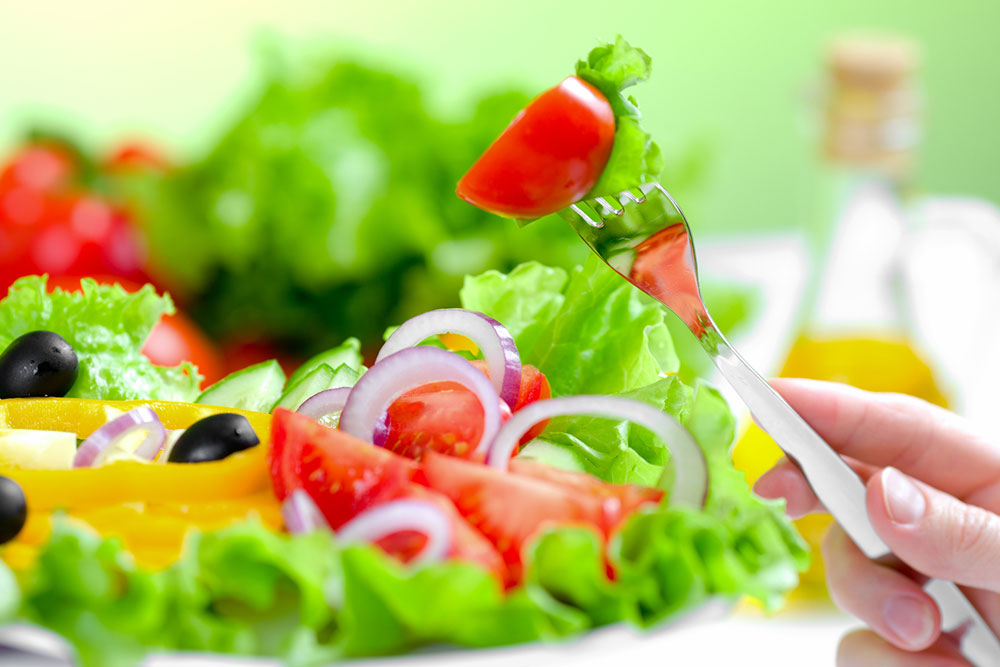11 foods that help relieve heartburn

It is quite normal to experience heartburn and acid reflux occasionally. This happens when the sphincter at the base of the esophagus does not close up, allowing backflow of stomach acid. Overeating, immediately lying down after eating, or eating less are a few common causes. Certain foods, like caffeinated beverages and fried foods, can trigger acid reflux. However, some foods help in relieving heartburn and acid flux. Here’s what to have when experiencing heartburn symptoms:
1. Whole grains like rye
The grains that retain the entire part of the seed, including the bran, germ, and endosperm, are known as whole grains. These are usually consumed in their whole form or ground into a powder. Compared to refined grains, whole grains are a rich source of fiber, iron, B vitamins, selenium, folate, magnesium, potassium, and other nutrients. Moreover, these have a low glycemic index. Brown rice, rye, barley, oats, quinoa, amaranth, and buckwheat are some common examples of whole grains that can help manage heartburn. Pastas and breads made from these grains can be helpful for meals.
2. High-fiber vegetables like carrots
Vegetables with high fiber content keep one satiated for a long time, making them feel full. This helps avoid overeating, which is one of the major causes of heartburn. Moreover, fiber helps the gut run smoothly, ensuring there are no problems in the digestion process. This ensures there is less possibility of acid reflux. One can sweet potatoes, carrots, potatoes, beets, asparagus, broccoli, green beans, spinach, kale, parsnips, celery root, yuca, Kkohlrabi, lettuce, and cabbage.
3. Egg whites
Egg whites have a relatively low fat content. Moreover, they are high in protein. On the contrary, the yellow in the eggs has a very high percentage of fat, which can worsen heartburn. Furthermore, fried eggs are not good for acid reflux. So, one can have poached egg whites to manage reflux symptoms.
4. Ginger
Ginger is known to have anti-inflammatory properties. Moreover, it is rich in antioxidants. These factors make it one of the most effective foods to manage digestive issues such as heartburn. Moreover, ginger is a known alkaline food that helps neutralize the acid in the stomach, which is healing in dealing with acid reflux and its symptoms. Adding ginger to soups, stir-fries, and other meal preps is an excellent way to include it while managing heartburn. Moreover, having ginger tea can help soothe the irritation and discomfort.
5. Non-citrus fruits like melons
Citrus fruits such as oranges, limes, and grapefruits are high in vitamin C, which is good for overall health. However, these fruits also have a high acid content. This can worsen heartburn symptoms and trigger acid reflux. Therefore, one must avoid these fruits when experiencing heartburn. Instead, opt for noncitrus fruits like melons, bananas, apples, and pears, which have high nutrient density and have a minimal possibility of triggering heartburn. Snacking on these fruits is a great way to get relief from heartburn.
6. Lean meats like chicken
Most lean meats have a lower percentage of total fats and cholesterol. Moreover, they are quite high in protein. All of these can help increase the lower esophageal sphincter pressure and flush out excess stomach acid, reducing reflux symptoms and heartburn. However, it is important to have the proteins baked, broiled, poached, or grilled. Also, make sure to remove the skin and avoid frying it. Some healthy lean meats are chicken, turkey, lean steak, and lean ground beef.
7. Yogurt
Yogurt has several health benefits and is a must-have in a meal plan. Along with being a good source of protein and calcium, it is rich in probiotics or good bacteria. This helps the gut keep functioning smoothly. Moreover, yogurt helps soothe the irritated and inflamed esophagus. It neutralizes the acid in the stomach and relieves the burning sensation, discomfort, bloating, and nausea caused by heartburn. One can add yogurt to smoothies, overnight oats, salads, etc. However, it is important to have yogurt without added flavors or sugar to gain the complete benefits.
8. Healthy fat sources like avocados
Foods with rich sources of unsaturated and healthy fats can help relieve heartburn. These foods soothe the esophagus by absorbing excess stomach acids. Eating these foods in moderation instead of fats from animal sources or processed foods is usually recommended to deal with acid reflux. Some of the common sources of healthy and unsaturated fats include avocados, flaxseeds, walnuts, seed butter, olive oil, sesame oil, and ghee.
9. Seafood like salmon
Seafood is a great source of lean protein and is low in unhealthy fats. This makes it easier to digest. As a result, there is less possibility of acid reflux. White fish such as Mahi Mahi, halibut, or tilapia are among the best seafood options for heartburn. In addition, salmon and tuna also help keep acid reflux low. Eating these fish with green veggies is a great way to manage the symptoms of acid reflux and heartburn.
10. Non-caffeinated beverages like herbal teas
Caffeinated beverages, such as coffee, are among the worst foods that can trigger acid reflux and worsen heartburn symptoms. This is because these beverages have a high acid content. Therefore, nonacidic and noncaffeinated drinks are a better option when experiencing heartburn. It is important to ensure that these beverages have no sweeteners or additives, which can further worsen heartburn. Some options for noncaffeinated drinks include herbal teas, plant-based milks, and juices made from nonacidic vegetables such as carrots.
11. Water-based foods like cucumber
Certain foods that have a high water content can help soothe heartburn. These foods dilute the excess stomach acid and alleviate the inflation and irritation in the esophagus. Some common foods containing a lot of water include cucumber, watermelon, broth-based soups, cantaloupe, and honeydew.







